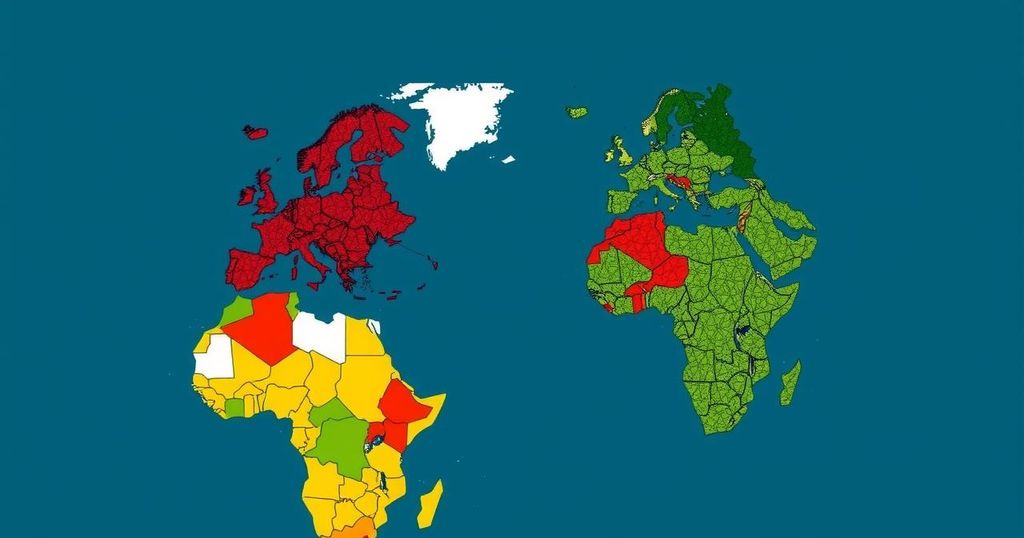The COP29 summit in Baku agreed on a $300 billion annual fund for climate aid to developing nations, but many criticized it as inadequate. UN Secretary General Antonio Guterres called for ambitious commitments, while the election of Donald Trump raises concerns about U.S. participation in climate finance. With severe climate impacts escalating globally, the necessity for effective financial support has become increasingly urgent.
At the recently concluded COP29 summit in Baku, a $300 billion annual global finance target was adopted to assist developing nations in addressing the impacts of climate change. However, many participants from these nations have expressed their disappointment, deeming the agreement inadequate. UN Secretary General Antonio Guterres acknowledged the need for more ambitious commitments but emphasized the necessity for timely fulfillment of existing promises. The outcome of the summit has been overshadowed by political changes in the United States following Donald Trump’s electoral victory.
Trump’s upcoming administration raises concerns regarding its commitment to international climate finance, as he has historically dismissed climate change as a non-issue. His election suggests that the U.S., the world’s largest historical polluter, may abandon its obligations towards climate financing, further jeopardizing the prospects for global climate action. Concurrently, geopolitical conflicts and rising inflation have shifted the focus away from climate concerns among Western nations, complicating negotiations for financial support intended for developing countries facing severe climate impacts.
As the year progresses, climate-related challenges are intensifying, with severe flooding, droughts, and natural disasters affecting regions worldwide. The need for a robust and effective response to climate change has never been more urgent, as the consequences are increasingly dire and widespread. The negotiations in Baku underscore the pressing need for equitable financial commitments that can genuinely support countries grappling with the realities of climate change.
The COP29 summit convened in Baku against a backdrop of urgent climate threats, with predictions indicating that 2023 could be the hottest year on record. Developing nations, which are often the most affected by climate change, gathered to advocate for more substantial financial assistance to mitigate the severe impacts of global warming. The agreement reached during the summit and discussions surrounding climate finance are crucial for fostering international cooperation in light of climatic realities. However, the emergence of political shifts in the U.S. highlights the potential challenges in mobilizing necessary resources and commitments needed to combat the climate crisis effectively.
In conclusion, while the COP29 summit resulted in a notable financial target to aid developing nations with climate challenges, the response from these nations indicates widespread dissatisfaction with the outcome. The forthcoming U.S. administration under Donald Trump poses a significant risk to international climate finance commitments, which may hinder global efforts to address climate change. The urgency to ensure adequate financing for those most affected by climate-related disasters remains paramount, underscoring the need for continued international dialogue and commitment.
Original Source: al24news.com






